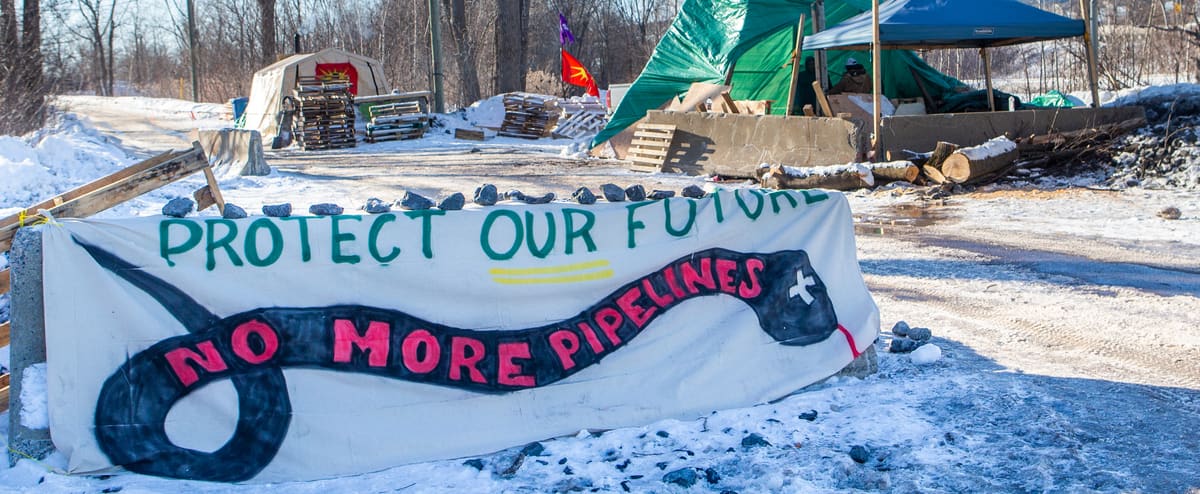Coastal Gaslink on Friday ended civil lawsuits against two journalists covering a protest against the construction of a gas pipeline on Indigenous land in northern British Columbia.
The Royal Canadian Mounted Police (RCMP) arrested photojournalist Amber Bracken and documentary filmmaker Michael Toledano on November 19 during a demonstration against the proposed pipeline in Witsuyen Territory.
The Canadian Association of Journalists, which had previously criticized the arrests of Mr. Toledano and Ms. Bracken, welcomed the dropping of the trial.
“The surprise that these charges were dropped on the Friday before Christmas is undoubtedly puzzling, it’s certainly an important moment for press freedom in Canada, but the work continues,” ACJ President Brent Jolly said.
At the time of their arrest, the RCMP were tracking Ms Bracken and Mr Toledano, in a database of police investigations, The Narwhal reported.
The media, which Amber Bracken was on a mission for when she was arrested, also denounced that “the Royal Canadian Mounted Police seized the recording devices and professional equipment of journalists, which prevented the public from witnessing the behavior of police officers during the raid, where more than a dozen were arrested.” Defenders of the land.
The Coastal GasLink pipeline, which is approximately 670 kilometers in length, will transport natural gas from Alberta to the coast of British Columbia for export. However, the infrastructure crosses traditional indigenous lands, with a portion of the population opposing the project.
Since 2020, many demonstrations and railway closures have taken place in the country in protest against the construction of this gas pipeline.
In early December, protesters blocked the Canadian National Railroad in St. Lambert to support the aboriginal people of Witsuyen in their struggle.

“Subtly charming problem solver. Extreme tv enthusiast. Web scholar. Evil beer expert. Music nerd. Food junkie.”

